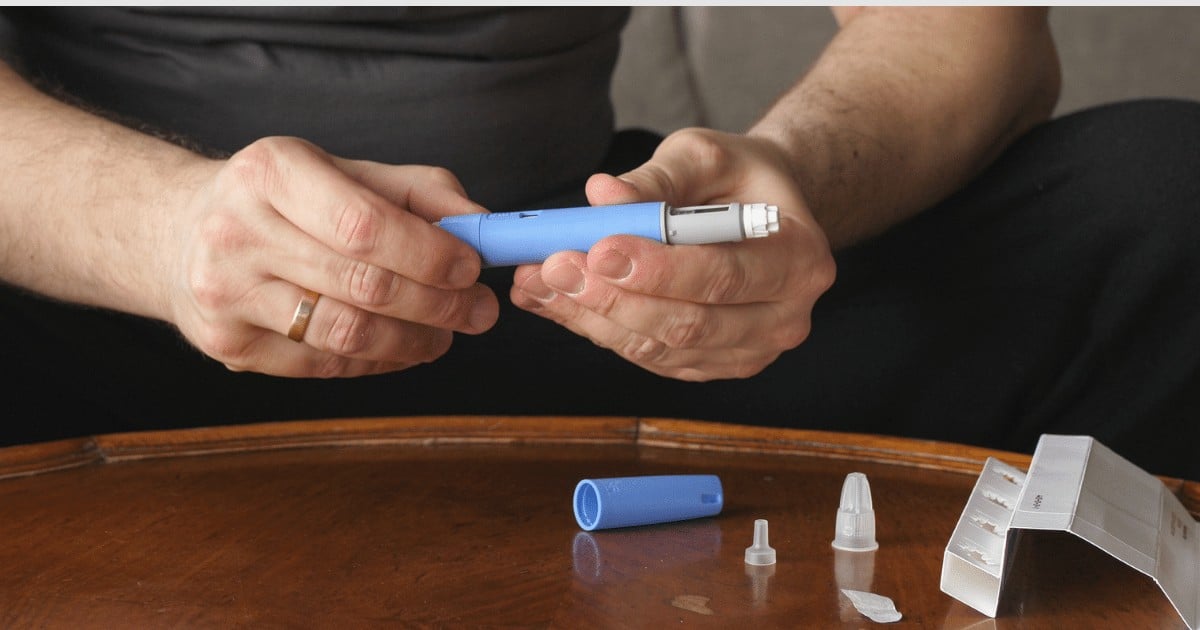Yes, Tirzepatide can be compounded. Compounding pharmacies can create personalized doses to meet individual patient needs.
Tirzepatide is a medication used to manage Type 2 diabetes. Compounding allows pharmacists to customize medications, ensuring precise dosages. This process can benefit patients with specific needs or allergies to certain ingredients in commercial formulations. Compounded Tirzepatide can be tailored to enhance patient compliance and efficacy.
Patients should consult healthcare providers to determine if compounded Tirzepatide is suitable for their treatment plan. Always ensure that the compounding pharmacy is reputable and follows strict quality standards. This personalized approach can significantly improve diabetes management and overall health outcomes.
Tirzepatide: A New Era In Diabetes Management
Tirzepatide offers new hope in diabetes care. This innovative drug promises better blood sugar control. It may also help with weight loss. Discover how Tirzepatide changes diabetes management.
The Science Behind Tirzepatide
Tirzepatide is a dual-action drug. It activates two receptors:
- GLP-1 receptor
- GIP receptor
These receptors help regulate blood sugar levels. GLP-1 stands for glucagon-like peptide-1. GIP stands for glucose-dependent insulinotropic polypeptide. Together, they enhance insulin secretion. This helps in lowering blood sugar.
Tirzepatide combines both actions in one injection. This makes it more effective than other treatments. It targets multiple pathways in the body. This leads to better blood sugar control.
Clinical Efficacy And Safety Profile
Clinical trials show promising results for Tirzepatide. Patients experienced significant blood sugar reduction. They also lost weight.
| Clinical Outcome | Result |
|---|---|
| Blood Sugar Reduction | Significant |
| Weight Loss | Notable |
Safety is crucial in any treatment. Tirzepatide has a good safety profile. Most side effects are mild. Common side effects include:
- Nausea
- Diarrhea
- Decreased appetite
Serious side effects are rare. Doctors monitor patients closely. This ensures the treatment remains safe.
Compounding Pharmaceuticals: An Overview
Compounding pharmaceuticals is a special practice in pharmacy. It involves creating custom medications. Sometimes, patients need a drug that is not available commercially. Compounding helps meet these unique needs. Let’s explore the basics of drug compounding and the regulations and standards that govern it.
Basics Of Drug Compounding
Drug compounding is the process of mixing, combining, or altering ingredients. This creates a medication tailored to an individual’s needs. Pharmacists can change the form of a drug. For example, they can turn a pill into a liquid. They can also add flavors to make medicines taste better. This helps patients who have difficulty swallowing pills. Compounding can also remove allergens from medications.
Here are some key points about drug compounding:
- Custom dosages for patients with special needs.
- Alternative forms, such as creams or liquids.
- Medications free from certain allergens.
- Flavored medications for children and pets.
Regulations And Standards
Compounding pharmacies must follow strict regulations. These rules ensure the safety and effectiveness of compounded drugs. In the United States, the Food and Drug Administration (FDA) oversees these regulations. State boards of pharmacy also have their own rules.
The United States Pharmacopeia (USP) sets standards for compounding practices. These standards cover:
- Quality of ingredients used in compounding.
- Proper training for pharmacists and technicians.
- Clean and sterile environments for compounding.
- Accurate labeling and documentation.
Pharmacies must comply with both federal and state regulations. This helps ensure that compounded medications are safe for patients. Proper training and clean environments are crucial. This prevents contamination and ensures the quality of the medication.
When considering compounded medications like Tirzepatide, it is essential to consult with healthcare professionals. They can provide guidance and ensure that the compounding pharmacy meets all regulatory standards.
Challenges In Compounding Peptide Medications
Compounding peptide medications like Tirzepatide presents unique challenges. These challenges stem from the complexities of peptide chemistry. Ensuring stability, precision, and safety requires meticulous attention. Below, we explore two primary challenges in compounding peptide medications.
Stability And Storage Concerns
Peptides are sensitive to environmental conditions. Temperature and humidity can degrade peptides quickly. This degradation affects their efficacy and safety. Proper storage is vital to maintain their stability. Refrigeration is often necessary to preserve their potency.
Light exposure can also degrade peptides. Packaging in opaque containers helps protect them. Using inert gases like nitrogen can further stabilize the peptides. Pharmacies must follow strict protocols to ensure peptide integrity.
Precision In Peptide Synthesis
Peptide synthesis requires high precision. Each peptide sequence must be accurate. Minor errors can lead to ineffective or harmful medications. Automated synthesizers often aid in ensuring precision. These machines reduce human error and increase consistency.
Quality control is crucial in peptide synthesis. Every batch must undergo rigorous testing. Purity and sequence accuracy are critical factors. Analytical techniques like HPLC and mass spectrometry ensure quality. Maintaining high standards in synthesis is essential for patient safety.

Credit: www.admireaesthetics.com
Exploring The Possibility Of Compounding Tirzepatide
Tirzepatide is a medication used to treat diabetes. Many wonder if it can be compounded. This blog post explores that possibility. We’ll dive into the complexities, benefits, and risks.
Evaluating The Complexities
Compounding Tirzepatide involves several complexities. First, the chemical structure is intricate. Second, maintaining stability is crucial. Third, ensuring proper dosage is challenging. These factors make compounding a sophisticated task.
Pharmacists must have advanced skills. They need specialized equipment. Quality control measures are essential. Without these, the compounded medication might not work effectively.
Potential Benefits And Risks
Compounding Tirzepatide offers potential benefits. One benefit is personalized dosage. Another is the ability to combine it with other medications. Patients might find it easier to take.
Yet, there are risks involved. Incorrect compounding can lead to adverse effects. There is also a risk of contamination. Compounded medications may lack consistency.
Here’s a quick comparison of benefits and risks:
| Benefits | Risks |
|---|---|
| Personalized dosage | Adverse effects |
| Combination with other meds | Contamination risk |
| Ease of intake | Lack of consistency |
Patients and healthcare providers must weigh these factors. Consulting a qualified pharmacist is essential.
The Future Of Customized Diabetes Treatment
Diabetes treatment is evolving rapidly. One exciting development is customized medication. The future promises tailored treatments that suit individual needs. One such advancement is the potential to compound Tirzepatide. This approach could revolutionize diabetes care.
Innovations In Compounded Medications
Compounded medications allow for unique formulations. They cater to specific patient needs. Tirzepatide is a new drug showing promise for diabetes. Compounding this drug could enhance its effectiveness.
There are several benefits to compounding medications:
- Personalized dosages
- Combination of multiple medications
- Alternative delivery methods
Pharmacists can create specific doses tailored to each patient. This can reduce side effects and improve outcomes. Combining multiple medications into one dose can simplify treatment plans. Alternative delivery methods, like transdermal patches, can offer more options.
Personalized Medicine And Patient Care
Personalized medicine focuses on individual patient care. It considers genetic, environmental, and lifestyle factors. Compounding Tirzepatide can be a key part of this approach.
There are several reasons why personalized medicine is beneficial:
- Improved patient compliance
- Reduced side effects
- Better overall outcomes
Patients are more likely to follow treatment plans that fit their needs. Reducing side effects can lead to a higher quality of life. Better overall outcomes mean healthier patients and lower healthcare costs.
Here’s a table summarizing the benefits of compounded Tirzepatide:
| Benefit | Explanation |
|---|---|
| Personalized Dosages | Specific to individual patient needs |
| Combination Therapy | Multiple drugs in one formulation |
| Alternative Delivery | Non-oral methods like patches |
The future of diabetes treatment looks promising. Compounding Tirzepatide may play a crucial role in this new era. Personalized medicine can change how we manage diabetes.

Credit: www.everydayhealth.com

Credit: cordovaweightloss.com
Frequently Asked Questions
Can A Compound Pharmacy Make Tirzepatide?
Yes, a compound pharmacy can make tirzepatide. Ensure the pharmacy complies with legal and safety regulations. Always consult a healthcare professional before using compounded medications.
How Much Does Compounded Tirzepatide Cost?
Compounded tirzepatide costs vary. Typically, prices range between $600 to $1,200 per month. Consult your pharmacy for specific rates.
What Are The Doses Of Compounded Tirzepatide?
Compounded tirzepatide doses typically range from 2. 5 mg to 15 mg. Consult your healthcare provider for personalized dosing instructions.
How Long Does It Take For Compounded Tirzepatide To Work?
Compounded tirzepatide typically starts working within a few weeks. Full effects may take 8 to 12 weeks. Results can vary per individual. Consult your healthcare provider for personalized advice.
What Is Tirzepatide?
Tirzepatide is a medication primarily used to manage type 2 diabetes by regulating blood sugar levels.
Can Tirzepatide Be Compounded?
Yes, tirzepatide can be compounded by specialized pharmacies to meet individual patient needs.
What Is Compounding In Medicine?
Compounding involves creating customized medications tailored to a patient’s specific requirements by a licensed pharmacist.
Why Compound Tirzepatide?
Compounding tirzepatide allows for personalized dosages, formulations, and combinations with other medications.
Is Compounded Tirzepatide Safe?
Compounded tirzepatide is safe when prepared by a licensed and experienced compounding pharmacy.
How Is Tirzepatide Compounded?
Pharmacists combine raw tirzepatide ingredients in specific ratios to create a customized formulation for patients.
Conclusion
Understanding whether tirzepatide can be compounded is crucial for patients and healthcare providers. Always consult a healthcare professional for personalized advice. Compounding may offer tailored solutions, but safety and efficacy must be prioritized. Stay informed and prioritize your health when considering compounded medications.


